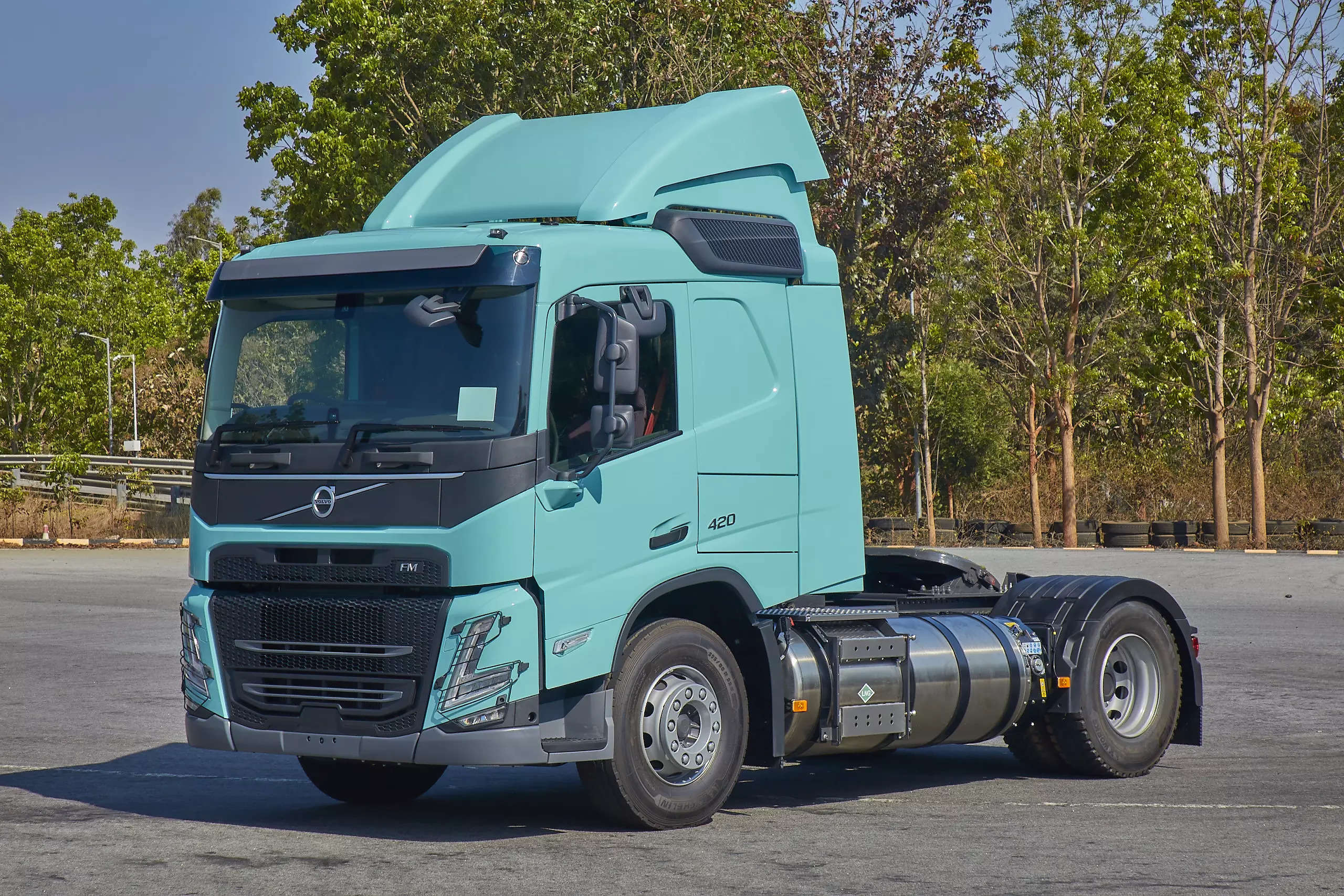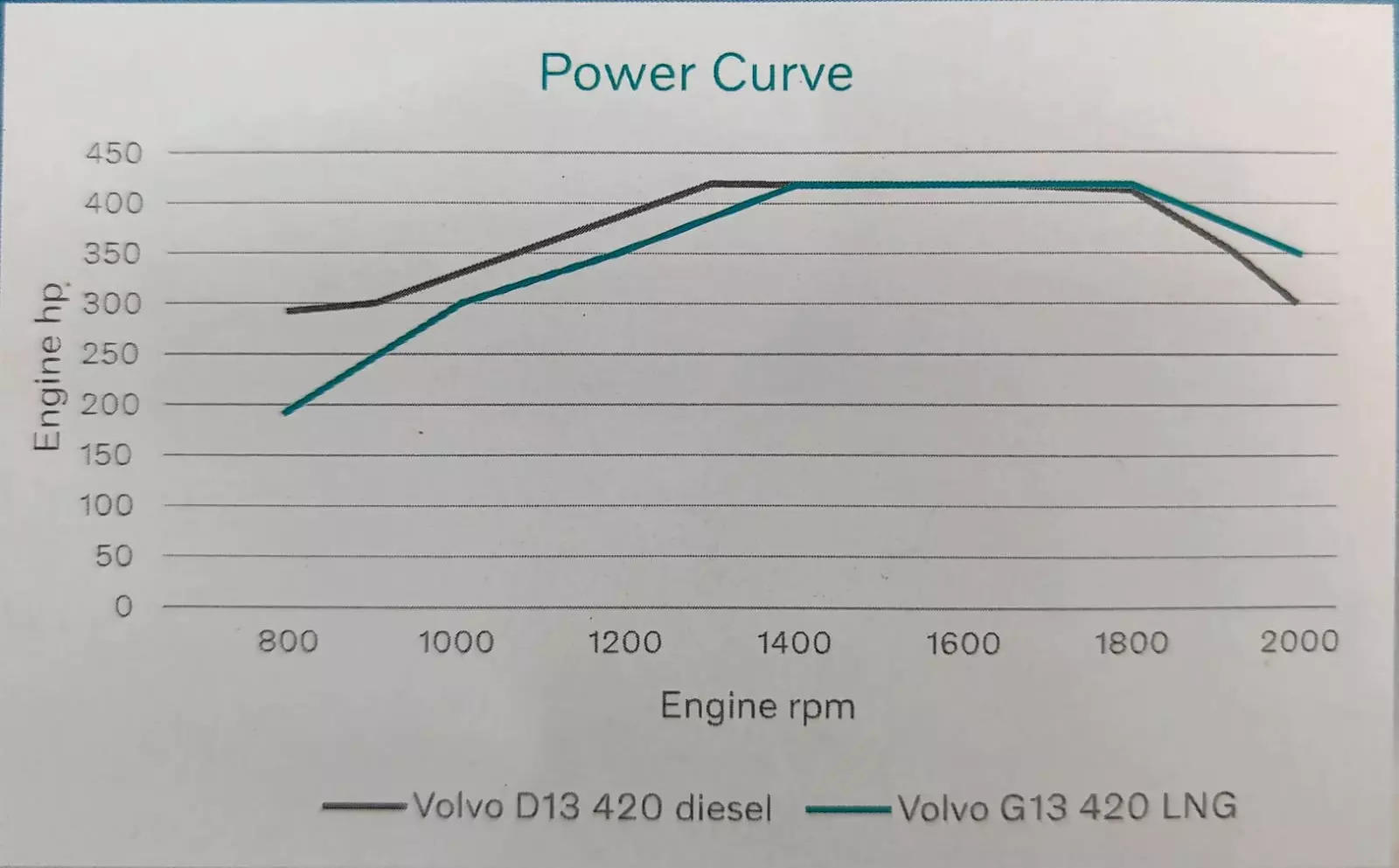
New Delhi: India’s stature as one of the leading global economies, and as a growing engineering hub are good enough reasons to attract more interest from a global truck major like Volvo Trucks. With the country’s commercial vehicle (CV) industry gradually adding LNG (Liquified Natural Gas) to its fuel portfolio, the Swedish truck maker has made an entry into this segment, with a 42-tonner FM420 LNG. A batch of 20 trucks has been delivered to logistics company Delhivery.
With this development, Volvo Eicher Commercial Vehicles (VECV), the 50:50 joint venture (JV) between Volvo Trucks and Eicher Motors, claims to have reached a unique position. “Today, Volvo Trucks is the only OEM supplying and supporting heavy-duty diesel, LNG and Electric trucks in India,” says Vinod Aggarwal, MD & CEO, VECV.
The deal with Delhivery is a culmination of commercial trials which began in September 2022. “It took a while getting here. Finally we’re here, and we’re just looking forward to meeting all the goals that we allocate. Let’s try and see how we can expand it,” says Arun Bhagavathi, Head – Network Design, Delhivery.
Volvo claims the LNG truck emits 20% less CO2 compared to equivalent diesel-run trucks, and there’s no CO2 emission if BioLNG is used to power the trucks. With an HPDI (High Pressure Direct Injection) technology, which uses diesel as a ‘liquid spark plug’ in the ignition cycle, Volvo claims its LNG truck ‘assures’ 15-20% better fuel efficiency than another LNG truck with a spark plug ignited engine.

In every ignition cycle, 5-10% of fuel burnt is diesel, followed by 90-95% LNG, which is pumped into the engine at 300 bar pressure. On the performance, driveability, and productivity parameters, the company says the LNG truck is at par with its diesel counterpart. The FM420 LNG has a 225 Kg cryogenic tank for LNG, and a 170-litre diesel tank.
Imported through the CBU (Completely Built Unit) route, the FM420 LNG is 40-50% more expensive than a diesel Volvo of the same tonnage. With localisation, its affordability would improve.“it’s fully in our interest to look into how we can produce the trucks locally,” says Johan Selvén, VP, Volvo Trucks International.
The inherent advantages of LNG technology, and a favourable price difference of 10% in fuel cost compared to diesel in India, are being pitched to attract customers.

Sustainability driven demand
With a growing focus on sustainable transportation, especially in the B2B sector, players in sectors like cement, steel are looking at balancing their relatively higher carbon emission by opting for transportation powered by cleaner fuel technologies than diesel. “The direction is towards that,” says Dinakar Boddapati, Executive VP and Business Head, Volvo Trucks India.
Volvo Trucks looks to tap all segments which use tractor trailers to transport goods. “That’s where we would like to introduce this (FM420 LNG) provided it meets the complete TCO (Total Cost of Ownership) and CVP (Cost, Value, Profit) level for the customer,” says Boddpadi.
Industry leaders believe LNG powered trucks have good prospects as, a[art from being a cleaner alternative to diesel, they also have far longer intervals between fuel refillings. The FM420 LNG, for example, can travel up to 1,000 Kms in a tankful. Experts say the fuel refilling ratio between a diesel truck and an LNG truck can be 10:1.
That may explain why other OEMs, like Tata Motors, Ashok Leyland, Blue Energy Motors are rolling out LNG trucks even though India has less than 15 operational LNG stations currently.
While an alternative fuel like LNG also is an important part in the journey towards sustainable transportation, the FM420 LNG is a key step in Volvo Trucks’ goal of achieving carbon neutrality by 2040. And, as India wants to build a gas-based economy, Volvo Trucks is hopeful of good prospects. The tractor-trailer market, which saw sales of 62,000 in FY24, is another factor. “Looking at India’s positive outlook towards a gas-powered economy, we decided to promote our LNG trucks as a first step in our journey towards net zero emissions by 2040” says Per Erik Lindstrom, Senior VP, Volvo Trucks international.
India opportunity
India is one of the 130 countries where Volvo Trucks has a presence in, and among 12 where it assembles its trucks. Apart from the assembly plant in Hoskote, near Bengaluru, Volvo Trucks also has a global technology centre, which is the largest outside home market Sweden, and a global Purchasing Office too in India.
”So we are already way on our way (in tapping India). India is already a key part of the global operations. And, we’re also growing in the domestic market. This is a trend that we for sure will keep continuing, and look at how we can leverage this,” says Hanna Ljungqvist, VP and Head of Volvo Trucks Market India and Indonesia.
Volvo Trucks’ journey in the LNG truck segment began in 2017, since when it has sold around 7,500 units globally. European markets Spain, France, Italy, and the UK have the larger population of Volvo LNG trucks, sas Selvén. Will India also emerge as a significant market for Volvo’s LNG trucks? It may be a “stepwise journey”, as Ljungqvist says about the growth of the LNG truck market.
The FM420 LNG, equipped with a 16-speed (14 forward and 4 reverse) gearbox, and Volvo’s I-Shift AMT system, the 7.5 tonne tractor was quite convenient to drive as this author found. There are factors beyond the convenience and comfort that will make fleet owners go for an LNG truck like the FM420 LNG.
What will help pave the way for the entire emerging market segment, as both Volvo Trucks, and Delhivery say, is some flexibility in LNG outlet allocation, and distribution norms.
















